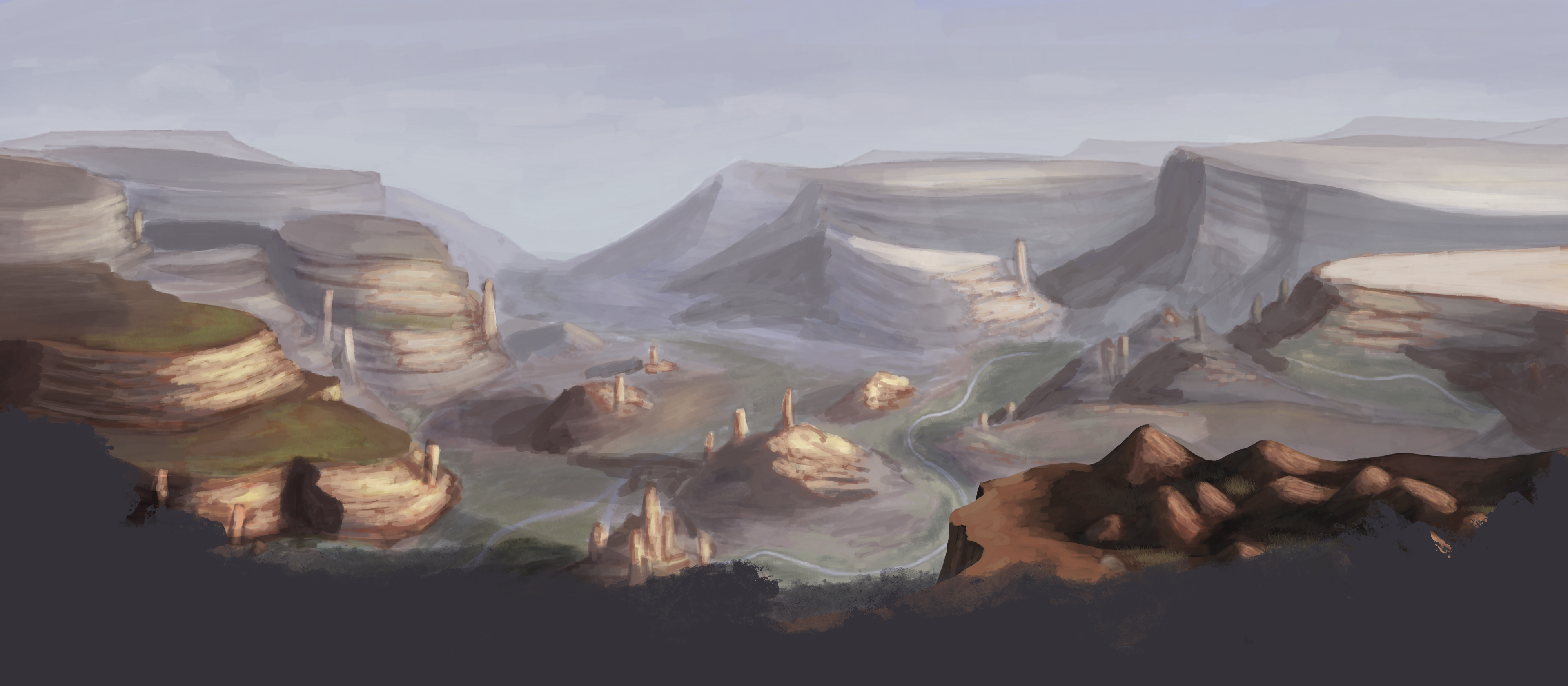Donsel
The Most common language among the Donhuid within the Sembar desert, derived from the words sun and language.
The language translating from it to "Sun language" is the tongue of the Donhuid and the vast majority of people within the desert of Sembar. Donsel has an archaic form referred to as Grunsel by those who use the modern variant, however the nomadic tribes who still use the archaic tongue refer to it as Donsel.
History
The language of Donsel was a catch-all term to refer to a great many languages of the desert, however since approximately -1000 years before the start of the contemporary era a great sage emerged Aladdin who brought a new understanding to magic. This sage guided and led countless scholars leading to a set understanding and synchronized tongue across the desert. A 1000 years later the language remains actively spoken, with a few exceptions. Prior to this change the language used a base 12 counting system, during this time it was changed to a base 10 alongside the creation of the calendar that is used till the contemporary era.Grammar
Adverbs
To create an Adverb the suffix -ya is attached onto the end. ex. Quick - Quickly/Yend - YendyaAdjectives
To create an Adjective the suffix -ak is attached onto the end. ex. Alive - Living/Yiral - Yiralak If it ends in vowel, then the suffix is changed to -lak.Pronouns
Pronouns are classified into three categories: general pronouns(used for non-warriors), prestige pronouns(used for warriors), and plural pronouns which both are used to indicate groups of people as in the case of Grunsel the clerical class.Phonetics
Consonants:
m
n
ŋ
p
b
t
d
k
g
q
s
ʃ
ħ
ɹ
j
l
Vowels:
i u e o ə a
i u e o ə a
Sentence Structure
Sentence structure
Donsel uses a Verb-Subject-Object (VSO) sentence structure.
ex. "I eat a date" - "Myr ne brinol" (Eat I date)
Adjectives are placed after the noun.
Descriptors are placed after the word they describe.
Prepositions are placed after the clause. Locative prepositions are an exception to this; they are placed after the object/location they modify.
ex. “The quick children run to the old home” - Ninel nel yend osilon grun tro (Run child quick home old to)
“I quickly ate a date" - Lirmyr yendya ne brinol (Ate quickly I Date)
"I rode my camel from the tent to the river" - Iqamilte iqamilne osi ort (river) tro (to camel camel-me tent from river to)
Donsel uses a Verb-Subject-Object (VSO) sentence structure.
ex. "I eat a date" - "Myr ne brinol" (Eat I date)
Adjectives are placed after the noun.
Descriptors are placed after the word they describe.
Prepositions are placed after the clause. Locative prepositions are an exception to this; they are placed after the object/location they modify.
ex. “The quick children run to the old home” - Ninel nel yend osilon grun tro (Run child quick home old to)
“I quickly ate a date" - Lirmyr yendya ne brinol (Ate quickly I Date)
"I rode my camel from the tent to the river" - Iqamilte iqamilne osi ort (river) tro (to camel camel-me tent from river to)
Dictionary
Common Phrases



Comments